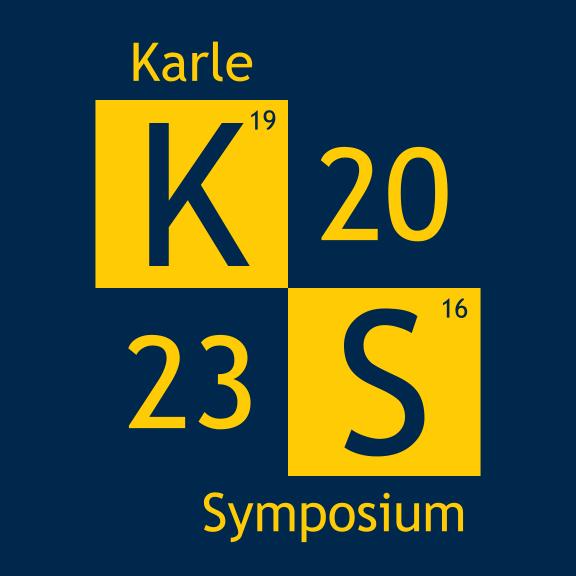Frequently Asked Questions
Registration
Q: Who is eligible to register for the symposium?
A: Anyone who is interested in attending the symposium is welcome to register. However, please note that abstract submission is limited to graduate students at the University of Michigan.
Q: When may I register?
A: Registration deadlines occur during the summer. Please check here for more information.
Q: What are the clusters/subject areas in which I can register?
A: Analytical, Chemical Biology (ChemBio), Chemical Education (ChemEd), Inorganic, Materials, Organic, Physical.
Abstract Submission
Q: Who is eligible to submit an abstract for the symposium?
A: While undergraduates are encouraged to register and attend, only graduate students working for faculty who have appointments in chemistry, including dry appointments, can submit an abstract for the symposium. Abstracts are limited to 250 words (not including title or author list); if your abstract has co-authors, please indicate this in your abstract submission.
Q: May grad students outside of chemistry submit abstracts?
A: If space is available, the committee may consider abstracts from outside the chemistry department, so long as the work to be presented is relevant to an audience of chemists. Out-of-department presenters are not eligible for presentations or travel awards. Eligibility requirements for presentations and travel awards can be found here.
Q: How should abstracts be formatted?
A: Abstracts must be uploaded as a .doc or docx format.
Q: May the abstract include figures?
A: One figure may be included in the uploaded file with the written abstract.
Q: When are abstracts due?
A: Abstract deadlines occur during the summer. Please check here for more information.
Q: Which cluster should I submit an abstract to?
A: When registering, the cluster/division of chemistry you choose does not need to match with the cluster under which you are matriculated. Rather, you should choose the cluster that best fits the research you wish to present. For example, even if a registrant belongs to the Chemical Biology cluster, he or she can submit an abstract to the Physical or Materials cluster if either of those are more appropriate to the registrant’s research.
Q: How does the Chemical Education cluster work?
A: The Chemical Education cluster is designed to give chemistry graduate students the opportunity to present alternate research projects that they may not otherwise have a chance to discuss. If there is enough interest in this cluster, an oral presentation may be set aside for Chemical Education.
Q: May I submit to more than one cluster?
A: No, unfortunately we only have space for each participant to submit and be considered for one presentation.
Q: Will my abstract be printed or shared?
A: All abstracts will be shared with the organizing committee and displayed in our abstract book. Our abstract book will be shared to the Karle participants and Department of Chemistry at the University of Michigan. If you do not want your abstract to be published, please indicate this on the registration form.
Presentations
Q: Who can be selected to give a poster presentation?
A: Any graduate student who submits an abstract may be selected to give a poster presentation. Undergraduates will not be selected to give poster presentations.
Q: How big can the posters be?
A: Posters should be about 40″ × 48″.
Q: Who can be considered for an oral presentation?
A: Only graduate students who submit abstracts and are eligible for awards may be selected to give oral presentations. Please indicate your intention to be selected for an oral presentation on the registration form. Student talks are 10 min and 5 min for questions. Abstracts that are not selected for oral presentations will be considered for poster presentations.
Q: Why can’t undergraduates present?
A: Poster space and symposium time are limited, and undergraduates in the department have other chances to present their work. For more information visit, URAN|UM.
Q: When will presenters be notified that they have been selected to present?
A: Graduate student speakers will be notified at least a week prior to the symposium that they have been selected to give an oral presentation. At that time, poster presenters will also be notified.
Awards
Q: Who is eligible to win a travel award?
A: Only graduate students whose advisors are listed as faculty on the Chemistry Department website are eligible to win any of the travel awards awarded for best poster presentations. Graduate students selected to give oral presentations are eligible to win one of three travel awards. Poster presenters must be present at their posters in order to be judged.
Q: Why don’t post-docs get awards?
A: The travel awards come from The Dow Chemical Foundation and PPG, which funds graduate student travel only.
Q: How are travel awards distributed among clusters?
A: Three travel awards are reserved for the top oral presentations. The remainder are given to poster presenters. The number of awards per cluster depends on the number of eligible posters in each cluster. For example, in 2012 there were many more ChemBio posters than Physical posters. The two clusters had a similar fraction of awards, but ChemBio had a greater number.
Q: Who determines the award winners?
A: Typically, The Dow Chemical representatives, PPG representatives and the keynote speaker judge the oral presentations. Faculty, graduate students, and post-docs volunteer to judge the poster sessions. We aim to have one faculty member / post-doc and two students judge each poster. Specific judging criteria can be found here.
Q: How are travel awards redeemed?
A: After a student has attended a conference, he or she will be reimbursed for the amount awarded. Further details will be sent to winners after the symposium.
More Questions?
Q: What if my question isn’t answered here?
A: Contact Gloria de la Garza gdlgarza@umich.edu or Nikki Woodall at nsperkin@umich.edu
#Karle2023
CONTACT
Madison Knapp
madknapp@umich.edu
Hayley Herderschee
hherder@umich.edu

